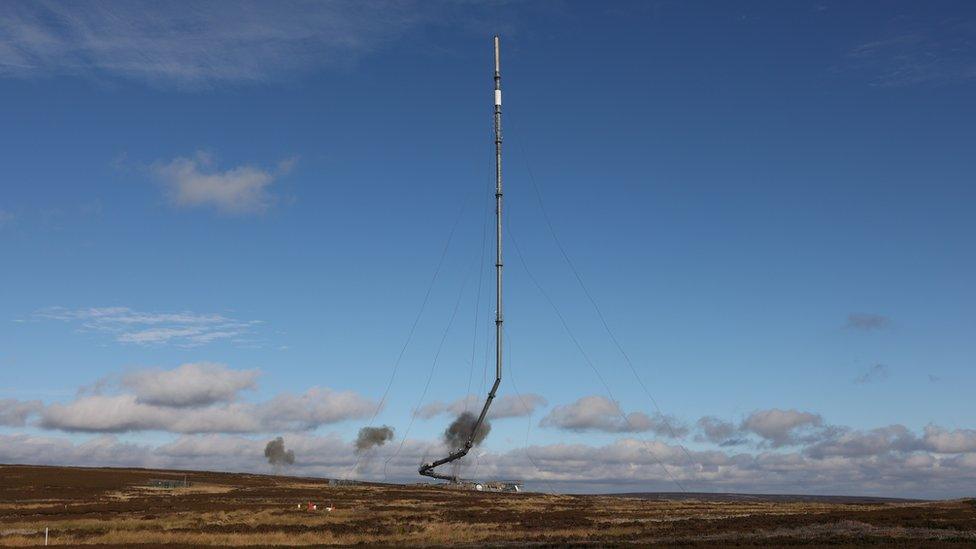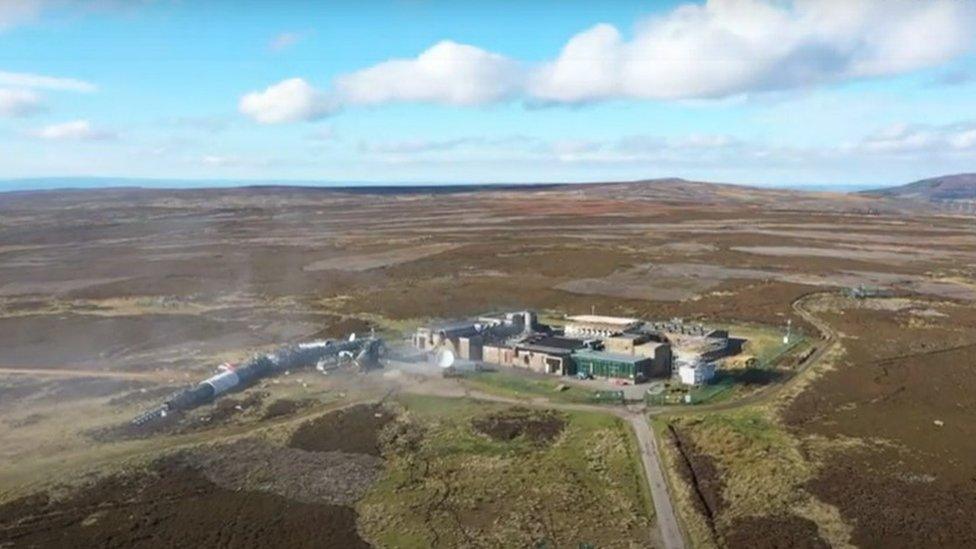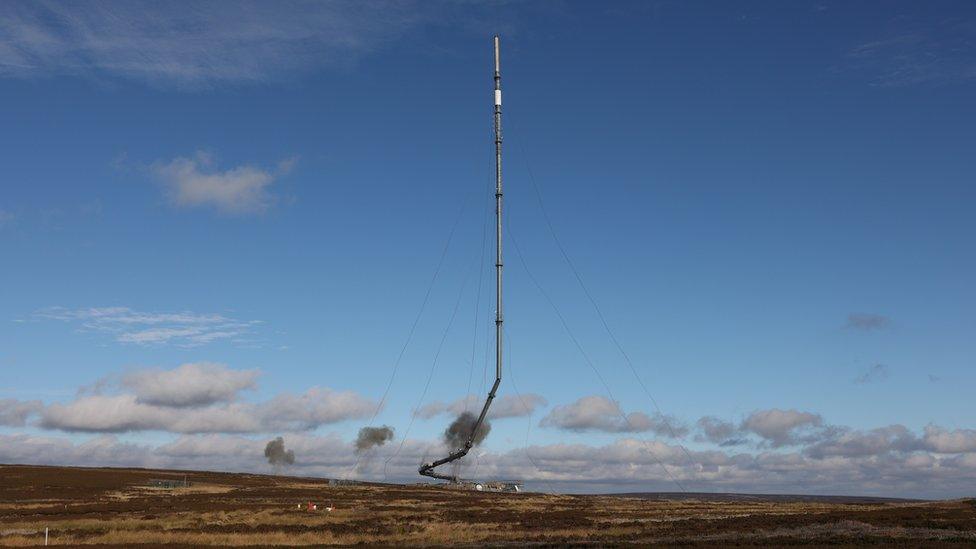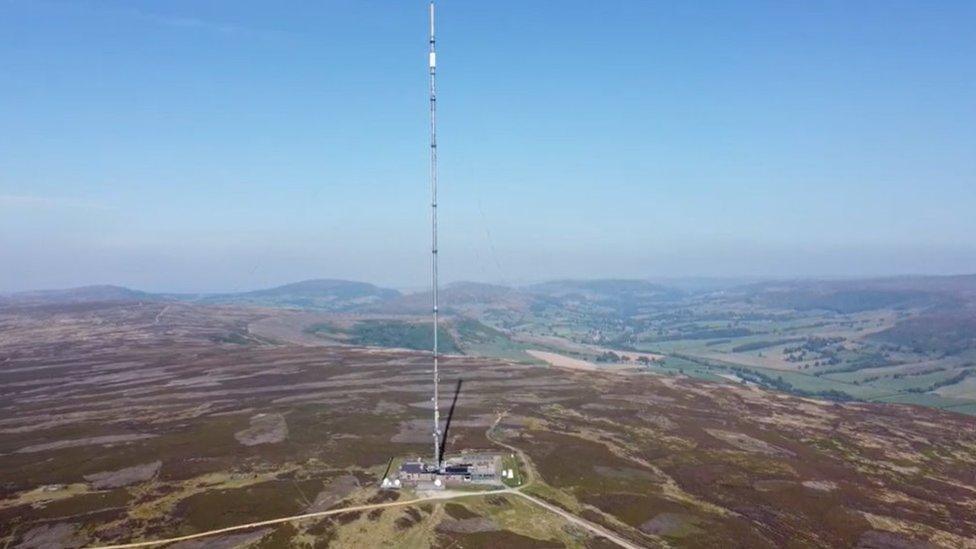Bilsdale transmitter: Temporary mast could harm moors, report says
- Published

The fire-hit mast was felled in a controlled explosion last week
A temporary mast to provide a TV signal for hundreds of thousands of homes could have harmful consequences for nature, a report says.
The emergency transmitter is due to be activated on Wednesday, two months after the Bilsdale mast caught fire.
The report said it had "potential for damage and therefore loss of extent of qualifying natural habitat".
Mast owner Arqiva said it had "taken great care to protect and prioritise" the moorland.
"We have a detailed heathland recovery strategy which will be implemented as the temporary mast is removed to ensure that there is no long-term harm to the moorland," a spokesperson said.
The mast will serve homes in Teesside, County Durham and North Yorkshire and restore services to more than 90% of the 600,000 households affected.
However, work to examine how the new transmitter, also at Bilsdale, will affect parts of the protected North York Moors is likely to continue for years.
Chemicals and concrete
Due to the urgency of putting up the new steel mast, work has been allowed to begin while concerns for the site are examined, the Local Democracy Reporting Service said.
The study, conducted on behalf of Arqiva, highlights how the fragile ecosystem could suffer following trampling of vegetation and soil compaction and from the use of chemicals and the pouring of concrete and other materials into the soil.
It also found it might displace nesting birds or dependent young and damage nests, and there were concerns over potential chemical spillages and ingestion by birds.
A report lodged with the North York Moors National Park Authority added "significant excavations" were anticipated to be necessary as part of the project.
It said 300 tonnes of soils might have to be removed to create the staging area and foundation, which "may have an impact upon local hydrology".

Arqiva said calm weather provided a window of opportunity to carry out the controlled demolition
The study found the loss of habitat would have "short-term adverse effects but will not adversely affect site integrity, given the small area of land involved".
To counter the concerns, measures have been proposed to ensure the new tower has a minimal impact on the dry heaths, it said.
"There is a strong and urgent public interest in establishing continuity of coverage to those affected by the Bilsdale transmitter fire," the report concludes.
"Many thousands of people will benefit from the coverage provided by the proposed development where the effects are demonstrated to be reversible…"
The 1,030ft-high (314m) fire-hit mast was felled in a controlled demolition last week because it was irreparably damaged.
Meanwhile, TV viewers have been told they may experience disruption ahead of Wednesday's switch-on, and should not retune their TVs on Tuesday.
Any signal loss will be restored on Tuesday evening and, providing final tests are successful, the new Bilsdale mast will be operational from 06:00 BST on Wednesday.
Arqiva has set up a website advising those affected of what action they should take., external

Follow BBC North East & Cumbria on Twitter, external, Facebook, external and Instagram, external. Send your story ideas to northeastandcumbria@bbc.co.uk, external.
Related topics
- Published6 October 2021

- Published4 October 2021

- Published1 October 2021

- Published29 September 2021
